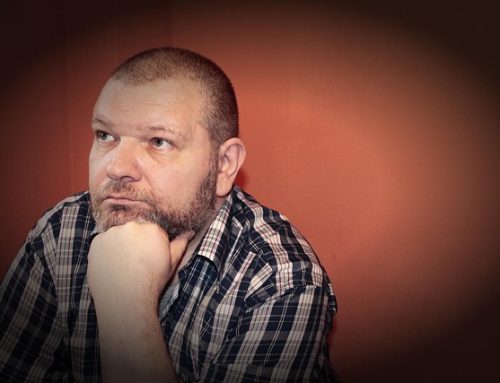
It appears – according to the many questions on this theme that I regularly receive – that Modern Life leaves many people dissatisfied. Scratch the surface a little and, if this is true, it’s easy to see why this might be. I don’t know the ages of the people who are asking these questions, but I’m assuming this problems affects younger people and those to cling to social media.
Social media feeds us carefully curated stories of ‘perfect lives’, and highlight reels that distort reality. Together with pervasive cultural messages that say “anything is possible whoever you are”, these can easily produce a false sense of expectation or even entitlement .
The result? A growing gap between our expectations and the real demands of life – leaving many of us trapped in dissatisfaction. This post explores why modern life often makes us feel unhappy and what it really takes to break free from the cycle.
False narratives
In a world where success stories are broadcast 24/7, it’s easy to feel like we’re never measuring up. Social media highlights others’ best moments while hiding their struggles, leaving us stuck in constant comparison. At the same time, a growing sense of entitlement has set unrealistic expectations for instant success and happiness. The result? A widening gap between what we think life should look like and the messy, demanding reality we actually live in. This post explores some contributors to how so many of us feel dissatisfied – and what it takes to break free from the cycle.
If many people today feel unhappy and unsuccessful (let’s assume), and this isn’t just bad luck – it’s tied to the way modern life shapes our expectations. One of the biggest drivers is social media. Every scroll through Instagram, TikTok, or LinkedIn bombards us with curated images of people who seem fitter, richer, happier, and more successful. These snapshots are not reality, but our brains still compare, often leaving us with the sense that we’re falling behind. Instead of measuring progress against our own goals, we constantly measure ourselves against highlights and reels. That’s a recipe for dissatisfaction.
False sense of entitlement
Another factor is the rise of entitlement. We’ve been told we can “be anything” and “achieve anything”, but that message comes without the sobering reminder that success takes years of grind, setbacks, and uncomfortable growth. This creates an unrealistic expectation that success should be quick and guaranteed. When it doesn’t happen, we feel cheated rather than challenged. Entitlement also makes us less resilient so setbacks feel personal, not just part of the process.
Add to this the cultural obsession with productivity. We equate worth with output, money, or recognition, so if we’re not constantly ‘crushing it’, we assume we’re failing. This is exhausting, and it can strip life of joy. This also means that we are measuring ourselves according to imposed ideas about worth and our value, to ourselves and others. Since we can’t control these external factors, we are bound never to measure up
We also overlook less visible but equally important forms of success, like resilience, kindness, or simply showing up when it’s hard. The pressure to perform creates a moving target: no matter how much we do, there’s always someone doing more, earning more, or receiving more recognition. This leaves us caught in a cycle of striving without acknowledgement for our efforts, or satisfaction. Our sense of self-worth is always conditional and never secure. True fulfillment becomes impossible because the standards we’re chasing were never designed to be achievable in the first place.
More accurately
The truth is, unhappiness today isn’t just about external pressures – it’s about how we internalise them. Social media and a sense of entitlement conspire to magnify the gap between expectation and reality, goals and possibility, and living in that gap creates chronic dissatisfaction. If success is always ‘out there’, defined and judged by someone else, we’ll never feel that we are truly valued, nor that we have arrived.
Breaking the cycle means redefining success on our own terms: progress, not perfection; effort, not entitlement. Without that shift, we’ll stay locked in comparison and disappointment.
First steps
Useful and practical first steps break the cycle are to recognise it, and to begin to build your own reference points as markers of your identity and sense of purpose. For example, do you know your values; what you stand by in life. They can act as an inner compass, but only if you investigate yourself a little to find out what you are.
As to your true identity, why is that important? Because without clarity about your identity, you risk falling into the traps above. You could end up pursuing goals that look impressive on social media but feel empty once achieved. Knowing your true identity helps you ground yourself. It builds resilience when life throws challenges at you and strengthens your confidence when making tough calls. Simply put, it saves you from wasting time on things that don’t fit with who you are.
Photo: Vitaly Gariev/Pexels
Discover more from Barry Winbolt
Subscribe to get the latest posts sent to your email.
Related Posts
Discover more from Barry Winbolt
Subscribe to get the latest posts sent to your email.







